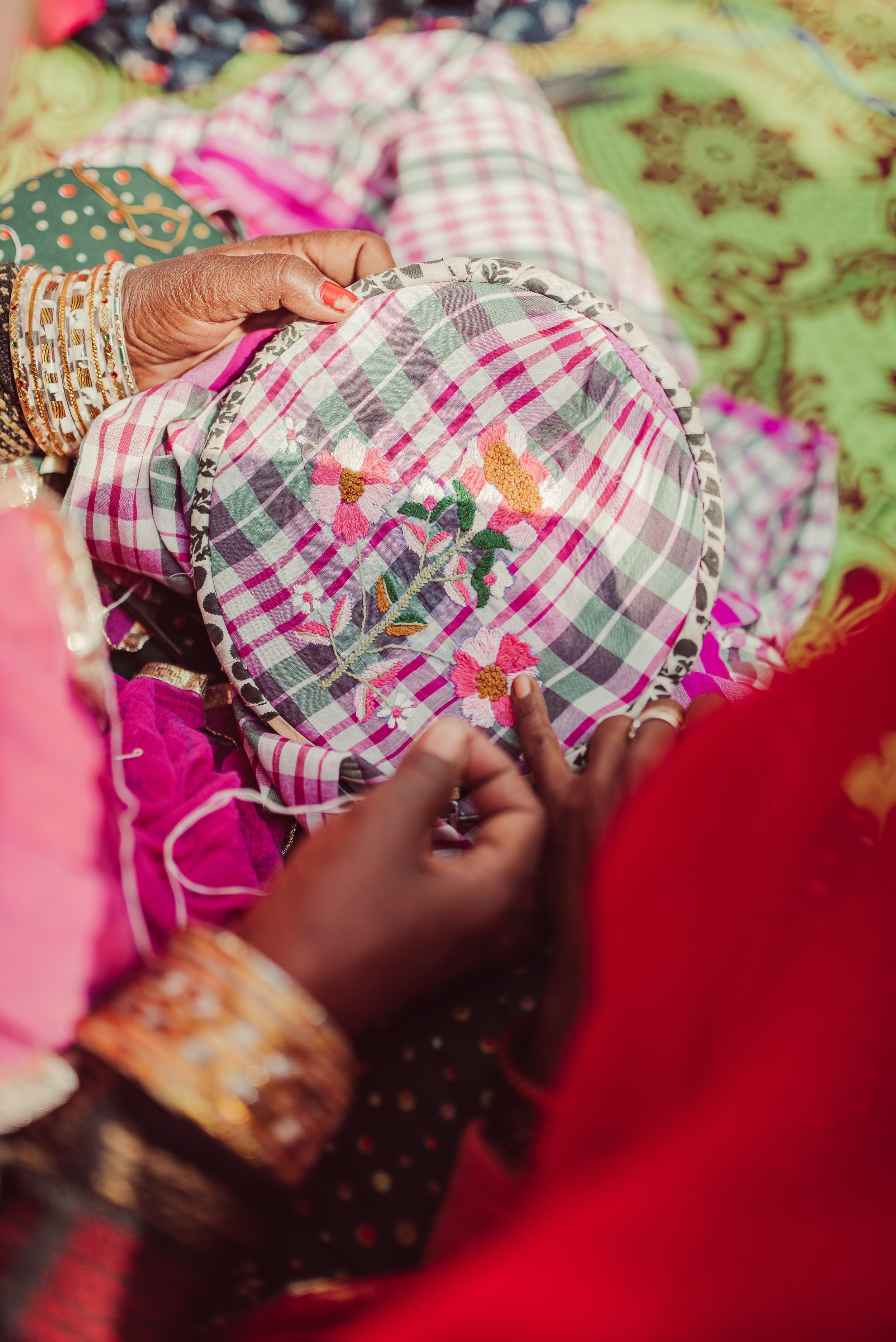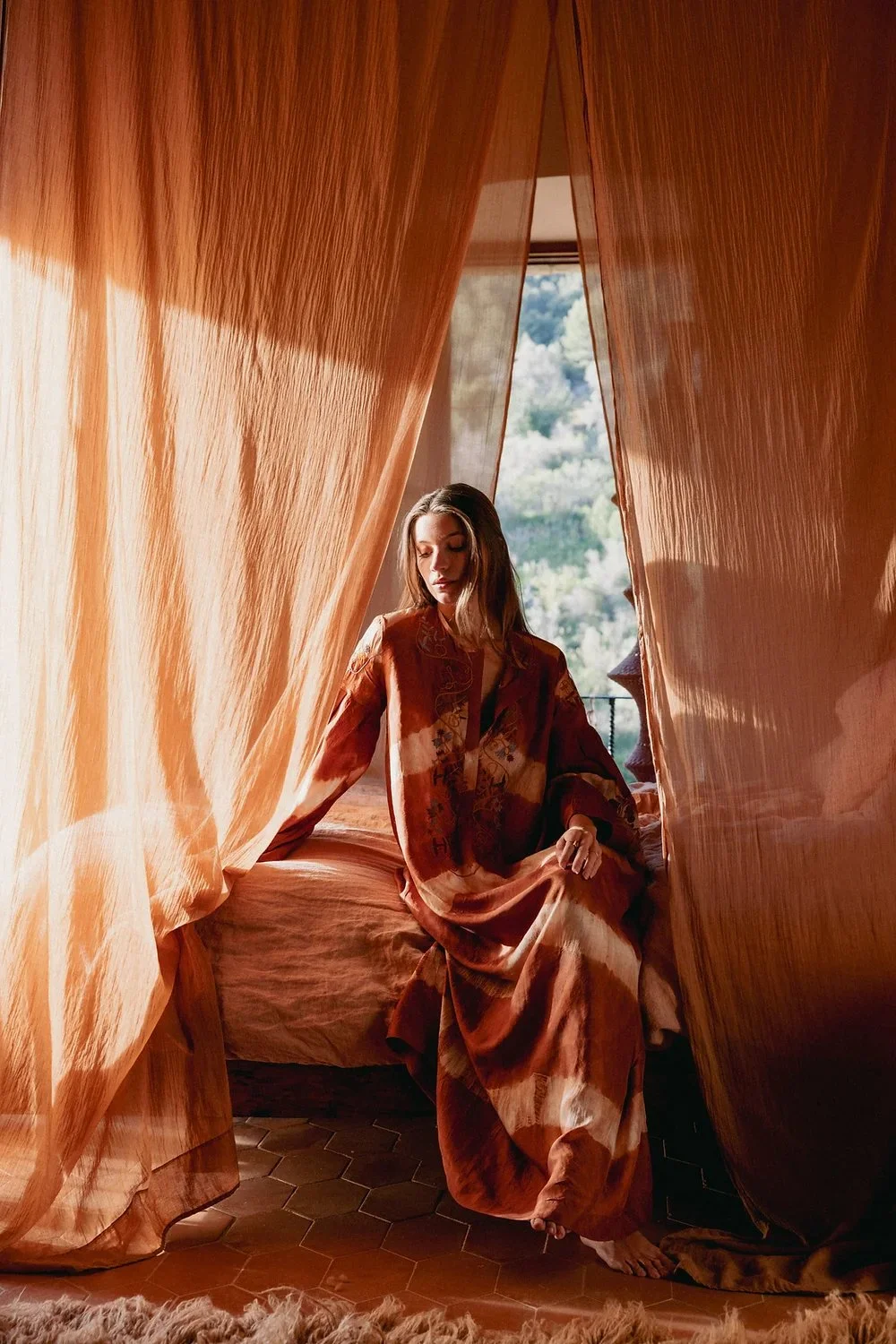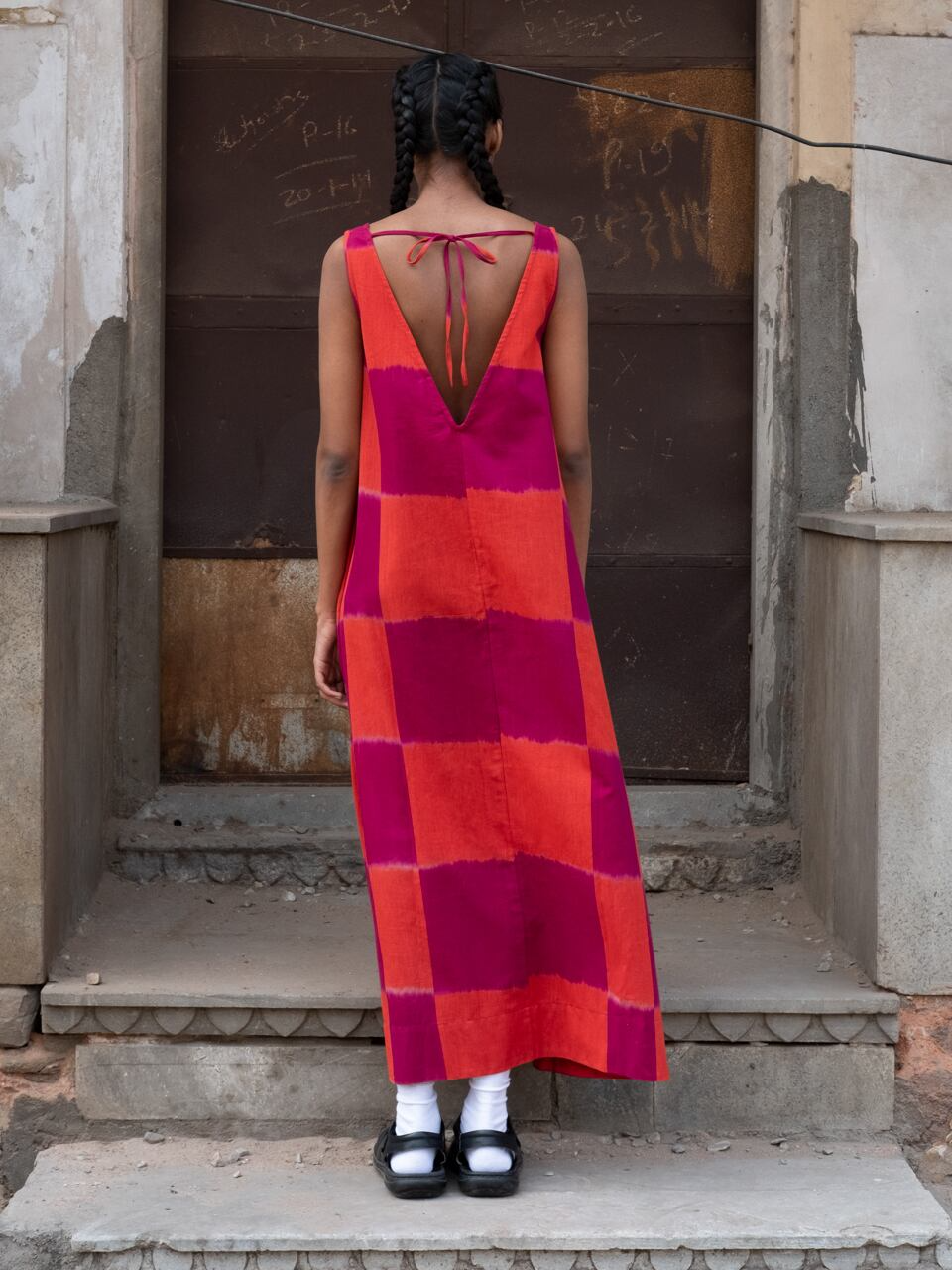
Our Skills.
We provide a complete service for fashion brands seeking responsible garment production at all stages of creation.
At Saheli Women, we provide services that work in harmony with the environment, create local employment opportunities, develop local skills, and advocate for the empowerment of the women in the work place — both at our ateliers and across India. We have been working with international fashion designers and labels since 2015, serving as a bridge to connect them with rural artisans.
-
We are proud of India's rich textile heritage, and strive to preserve and promote traditional fabric production through sustainable methods. We work with local fabrics and trimmings including organic cotton, Khadi handspun cotton, handloom silk and Ikat. Apart from creating new fabric, 50% of our production comes from recycled and upcycled fabric, for which we can assist you in sourcing.
-
We work directly with artisan communities of handloom ikat, khadi and silk weavers. This ensures that each step of our production process benefits all stakeholders along our supply chain, and enables us to maintain full transparency from yarn to garment. Our strong relationships with these communities allow us to source fabrics that are ethically handmade with natural fibers and dyes. Our artisan partners weave in their own homes and are paid directly, ensuring a balanced life and fair pay. We make regular trips to the weaving communities to maintain relationships, build trust and perform quality checks.
-
Our skilled artisans, trained in traditional and modern sewing techniques, are overseen by our Master Tailor and center managers, who handle pattern making, size grading, and sample development. Collaborating closely with our clients, we prepare samples before beginning full-scale garment productions.
-
After developing the sample, we move into the production stage. We believe in small production and slow fashion to build a micro-economy in our communities with as little impact on the planet as possible. Our business model is suitable for both small and larger partners, as our minimum order quantity is low: 50 garments per style which can include different sizes and colours.
-
Quality underpins every part of our production processes. Every single article we produce is thoroughly inspected by our Quality Assurance Team to ensure that excellent standards are consistently maintained.
Stitching
-
Stitching was the very first skill we began utilising and developing as a slow fashion centre in 2015. After recognising that most women in Bhikamkor village already owned a sewing machine as part of their marriage dowry this seemed like the right place to begin, being able to develop skills the women already have within means of the resources available.
Our success has allowed us to move with the times, changing from singer peddle sewing machines to industrial modern machines that offer the best stitch quality possible.
Natural Dye
-
Our natural dye team at Kali Beri use a mix of vegetable/natural-dyes and sun-activated pigment inks to create beautifully dyed fabrics free from harmful chemicals.
They have extensive experience dyeing natural fibers such as cotton, linen, 100% handloom silk, bamboo silk, cotton silk, raw silk and satin silks.
Handloom
-
The handloom is an ancient craft practice and an important part of the cultural heritage in India. It is a slow process that involves great care and attention to detail, that produces durable and high quality fabrics that are made to last.
Our talented hand loom team can weave a range of designs to a beautiful standard and are always excited to try new patterns.
Embroidery
-
Embroidery is a culturally rich technique in Rajasthan. Our female artisans are trained in both traditional Indian and Rajasthani embroidery techniques, such as shisha, rabari, zari and sindhi, as well as more contemporary embroidery techniques. Hand embroidery takes time, care, great attention to detail and love.
Eco - Printing
-
Eco-printing is a sustainable botanical print technique that transfers a natural print onto fabric. In the eco-printing process colour is extracted from natural plant materials, like marigold and english rose and transferred onto the fabric, secured by steam.
The beauty of eco-printing is that no piece of fabric will ever be exactly replicated. Each garment made from eco-printing is completely unique and irreproducible. The print depends on the placement of the petals as they are scattered on the fabric by hand. It is also a completely natural and slow technique that uses renewable materials and is not harmful to the environment.
Block Printing
-
Block printing has existed in India since as early as the 12th century. It is a key part of the rich cultural heritage in Rajasthan. Block printing is a form of relief printing where a pattern is carved into a wooden block and then covered in ink and stamped onto fabric.
It is a timeless and culturally rich technique performed completely by hand.
LATEST CO-CREATIONS











